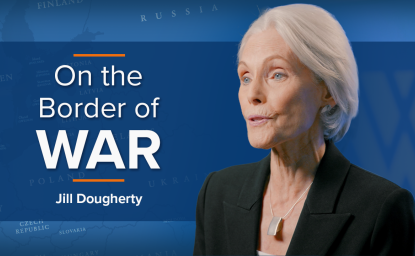 The Arab world is undergoing an information revolution. From satellite television to the Internet, more news and ideas are filtering out to more people in more innovative ways. Surprisingly, though, most in the Arab world are not getting their information nor shaping their opinions from television news programs.
The Arab world is undergoing an information revolution. From satellite television to the Internet, more news and ideas are filtering out to more people in more innovative ways. Surprisingly, though, most in the Arab world are not getting their information nor shaping their opinions from television news programs.
"Arab people distrust the news," said Marwan Kraidy, an assistant professor at American University's School of International Service and currently a Wilson Center fellow. The Arab media was government-controlled, he said, and even now news channels frame the big political issues rather than the local and social debates of the day.
The Arab world's major news network, Al-Jazeera, tends to examine and report on macro political issues such as the Israeli-Palestinian conflict and the war in Iraq. But Arab men and women are eager to discuss social issues, those that impact their daily lives, and they are finding an outlet for such dialogue through entertainment programming.
Today, reality television and talk shows—-and even music videos and commercials-—have sparked heated political debates on Arab-Western relations, political reform, personal freedom, women's rights, and sexuality. Though controversial, their ratings have soared.
One reality TV show causing a stir is Star Academy, featuring young men and women living together under one roof, all involved in a singing competition. The show, which airs on satellite television on the Lebanese Broadcasting Corporation (LBC) channel, touches sometimes provocatively upon sensitive social issues from personal freedom, relations between men and women, to singing and dancing in public.
"They're using local language and heritage but combining two worldviews," Kraidy said, an example of what he calls "cultural hybridity" where, in this case, Western and Arab cultures have collided.
While many Arabs would not condone some of the activities they see on Star Academy, they cannot seem to avert their eyes from it. Kraidy said some 80 percent of the Lebanese population is watching it, and in several other Arab countries, about 40 percent of the population is watching. In fact, satellite television entertainment shows have become such a lucrative business in the Arab world that such programming has become virtually unstoppable.
"Islam is only one of the sources shaping discourse in politics. Business interests are also powerful," Kraidy said.
Arab governments can no longer ignore the growth of satellite programming and must find ways to manage this new reality. "There must be a change in governance because information control is no longer viable," Kraidy said. He suggested that governments create a legal and regulatory framework to support this growth. In addition, he cited the need for public, but not state-owned, radio and television, akin to America's NPR or PBS, to foster the plurality of ideas.
Kraidy, of Lebanese descent, has taught international relations and communications at universities in the United States for a decade. During that time, he amassed a vast amount of archival, ethnographic, policy and statistical data focusing on some 500 hours of television programming that he is analyzing for inclusion in an upcoming book. "Media theory and research tells us that entertainment television in the developing world creates a public space where groups negotiate social and political change," he said.
Related Links


